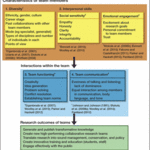Science Education & Policy

One of the difficulties of judging the ways of people is the
fact that highly intelligent individuals can at the same time be in the grip of
a totally cockeyed ideology. One reads things like this:
Parents
who dress their daughters in pink are
holding back the economy, says minister
Now I
am not including that government minister among the “highly intelligent
individuals”. But one very intelligent columnist for the Times (London), namely
Libby Purves, is a proponent of the same ideology. Nevertheless, she came out
recently with a column
Learning
facts helps us to recognise…

Policy makers know to hit biology where it counts; in the wallet. Rural farmers in Mexico have seen honey shipments to Germany rejected because of genetically modified organism (GMO) soybean pollen in honey samples
Is it harmful? No, but that is not how European science policy is written. Instead, because GMO soybean pollen in honey has not been approved for human consumption in honey, it as returned as unsafe and farmers have to take the hit - unless they stop using GMOs and use more pesticides and herbicides.
"As far as we could determine, every kind of GMO soybean grown in Campeche is…

Yet another government science report has found that the Keystone XL pipeline is not going to be risky to the environment.
This isn't the first time the Obama administration's own scientists reached this conclusion, but when activists balked last time (1), the president insisted it needed to be studied further. Then he said he was going to "fast track" an extension to it, even though he wasn't going to approve the extension to the extension. Yes, he agreed to build a Pipeline From Nowhere - through Indian burial grounds.
When it comes to science issues, the administration's…
If you listen to political pundits in Virginia and nationwide, House Bill 207 is a covert effort to hinder evolution education. (1)
The bill never mentions evolution, it instead "encourages students to explore scientific questions, learn about scientific evidence, develop critical thinking skills, and respond appropriately and respectfully to differences of opinion about scientific controversies in science classes" which sounds lovely. Who is against critical thinking and respect for diverse opinions?
The bill sponsored by Richard "Dickie" Bell got a lot of attention from science media…

'Whole Grain', like 'Natural' and 'Organic', has a lot of definitions. Fortunately for marketing departments, people often read their own positive definitions into those terms.
But people invariably pay more for all of those things, so if they pay for organic, they deserve to know if it has any of dozens of synthetic ingredients (it probably does) or the levels of pesticides on it. And the same for other food terms. Toward that end, writers in Food and Nutrition Research have set out to create the most comprehensive definition of "whole grain" to-date, in order to assist in the…

If you want to get quality research, you want the best researchers, right?
Not necessarily. An advanced trend in science academia is social engineering, and that means building a team that isn't simply the best minds, but has a diverse mix of ethnicity and gender and culture that can also communicate well, are socially sensitive and emotionally engaged with each other.
Good luck quantifying how "emotionally engaged" you are at review time.
Writing in Frontiers in Ecology and the Environment, the authors say that scientists should learn from the fields of business and education, where…

While there is a glut of PhDs in academia, to an extent where some post-doc jobs don't even pay anything, the President's Council of Advisors on Science and Technology said in 2012 that America will need an additional 1,000,000 science, technology, engineering and mathematics (STEM) graduates in the United States over the next decade to meet corporate economic needs. In a speech last week he ridiculed art history majors. He loves scientists and wants more of them.
A new paper in mBio outlines how even a modest increase in the persistence of STEM students in the first two years of their…

Voice voting is still used at some civic, local and county meetings. In more of a traditional sense, it's also still employed in Congress and some state meetings.
But new paper finds that a single loud voice can skew the result if that's not accounted for - the louder the voice, the cloudier the choice, according to a paper in the Journal of the Acoustical Society of America.
In voice voting, if you have never witnessed it, a presiding officer states a question, and the group that replies either yea or nay. The loudest is declared the winner, because volume is usually representative of…

If you care about what is in your food, you have no greater sympathetic intellect than me.
But if you are an anti-science activist, you may not understand the distinction between what is in your food and what it simply is - and there we part company. A genetic modification (GMO) is your food, for example, it is no different than any other food from a health perspective. Cataloging the numerous ways agriculture has genetically engineered food for as long as food has been grown is outside the scope of this piece, but GMOs don't bother me and that science shouldn't bother you either. (1) …

Currently in the UK, when health care workers are "unequivocally guilty of willful or reckless neglect or mistreatment of patients" that is not criminal behavior but Dr. Jo Bibby, Director of Strategy at the Health Foundation, writing in BMJ, says the proposal, made in response to the Francis inquiry, will close a gap in the law and is one of many important steps to improving patient care, though won't prevent any deaths.
The Francis Inquiry was an examination into the failings of the NHS after incidents at Mid-Staffordshire NHS Foundation Trust revealed appalling suffering of many patients…